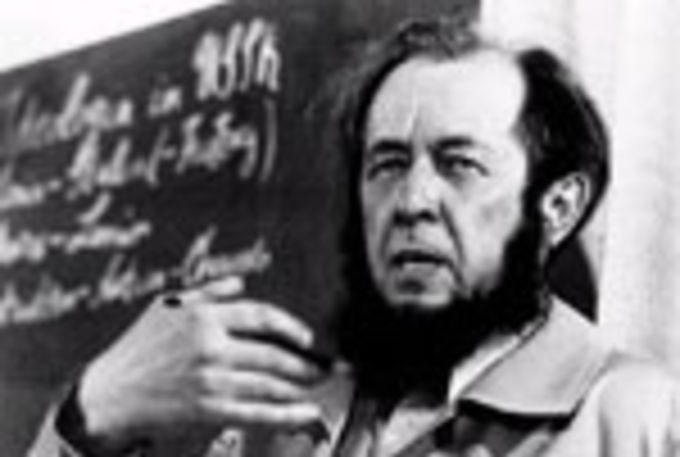An abbreviated interview by Russian Baptist media with Yuri Sipko, President of the Russian Union of Evangelical Christians-Baptists, on the death of Alexander Solzhenitsyn.
Interview with Baptist President Yuri Sipko on the passing of Alexander Solzhenitsyn M o s c o w -- An abbreviated interview by Russian Baptist media with Yuri Sipko, President of the Russian Union of Evangelical Christians-Baptists
The writer Alexander Solzhenitsyn died at age 89 on 4 August in Moscow. How do you judge his efforts? What do you like most about his work?
His work is a very special creation. He was not a novelist in the usual sense. He was more a political novelist and chronicler. His “Archipelago Gulag” is more of a protocol than a novel. His “One Day in the Life of Ivan Denisovich” was also a protocol – the chronicle of a single day.
Solzhenitsyn was a spiritual giant. He was one of only a few who audibly spoke the truth. He was a man of the truth. In contrast to most of us and in contrast to all those now eulogizing the deceased, he did not hide the truth. He lived by the truth and he spoke the truth. He did not speak the truth for the sake of his own well-being, for he disdained himself. That’s what a like about his work. It takes a lot of effort to read him. He didn’t write thrilling novels - he wrote about the bloody suffering of my people. Even today, that forces me to weep.
How have his books influenced Russian society?
In no way whatsoever! Very recently, US-President Bush expressed the opinion that communism and Nazism were equally brutal. Our Foreign Ministry reacted immediately: Do not dare to condemn communism! Communism contains an extremely humane ideology. A series in our Second TV channel, “Russia in Persons”, described Stalin and Lenin as the most appealing leaders in the whole history of Russia. And the recently-deceased evokes hatred on the part of very many of my fellow citizens.
But there was on the other hand no small number of people who were able to recognise the truth through Solzhenitsyn’s work. They were those able to be purified through his fearless words. Just today a person testified to me that Sozhenitsyn’s work brought him to God.
Solzhenitsyn did not hide his faith, but in his books he did not attempt to convert the reader. Could we regard him as a Christian writer?
I would call him a Christian writer. A novelist or a person from any other trade does not qualify as a Christian by simply defining himself as one when it is convenient, but rather by truly being one. By the way: In our totally religious country, with the passing of Solzhenitsyn not a single person of conscience and truth remains! The leadership of our country has just admitted that – and that was indeed a rare insight.
Solzhenitsyn is almost the only Russian author who ever wrote about Baptists. One of them is a chief protagonist in the book “One Day in the Life of Ivan Denisovich”. Why in your opinion do Baptists not appear in contemporary short stories and novels?
That well-known story is not any ordinary one – it is more of a protocol. And Aloshka was an expression of the Baptists as a reality of Russian society. Aloshka expressed freedom, and that in a Gulag! An impartial writer like Solzhenitsyn could not help noticing and reporting on that segment of Russian truth. Contemporary short stories and novels are commercial products - and Baptists do not sell well.
Baptists do still end up in protocols – in police ones. It’s their kind of thing. As the Lord had prophesied: “As they have persecuted me, they will also persecute you.” “As they have reviled me, they will also revile you.”
Department for External Church Relations, RUECB
